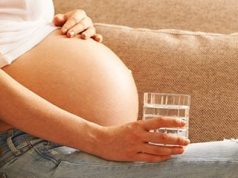But UCM safe, feasible and may offer some health benefits for nonvigorous infants at birth
TUESDAY, Sept. 13, 2022 (HealthDay News) — Umbilical cord milking (UCM) does not reduce neonatal intensive care unit (NICU) admission but is safe, according to a study published online Aug. 12 in the American Journal of Obstetrics & Gynecology.
Anup C. Katheria, M.D., from Sharp Mary Birch Hospital for Women & Newborns in San Diego, and colleagues compared UCM to early cord clamping (ECC) in nonvigorous newborns born between 35 and 42 weeks of gestation at 10 medical centers in three countries in a pragmatic cluster-randomized crossover trial. Centers were randomly assigned to UCM or ECC for about one year and then crossed over for an additional year. A total of 1,780 newborns were eligible (905 UC and 875 ECC); primary outcome data were available for 1,730 newborns.
The researchers observed no significant difference in the frequency of NICU admission between the UCM and ECC groups (23 and 28 percent, respectively; modeled odds ratio, 0.69; 95 percent confidence interval, 0.41 to 1.14). There was an association for UCM with predefined secondary outcomes, including higher hemoglobin, and lower odds of abnormal one-minute Apgar scores, cardiorespiratory support at delivery, and therapeutic hypothermia. Moderate-severe hypoxic-ischemic encephalopathy occurred significantly less frequently with UCM than ECC (1 versus 3 percent; crude odds ratio, 0.48; 95 percent confidence interval, 0.24 to 0.96).
“These data provide the first randomized controlled trial evidence that milking the intact umbilical cord prior to clamping in nonvigorous infants may well be an important, affordable, and easy potentially better practice,” the authors write.
Abstract/Full Text (subscription or payment may be required)
Copyright © 2022 HealthDay. All rights reserved.








